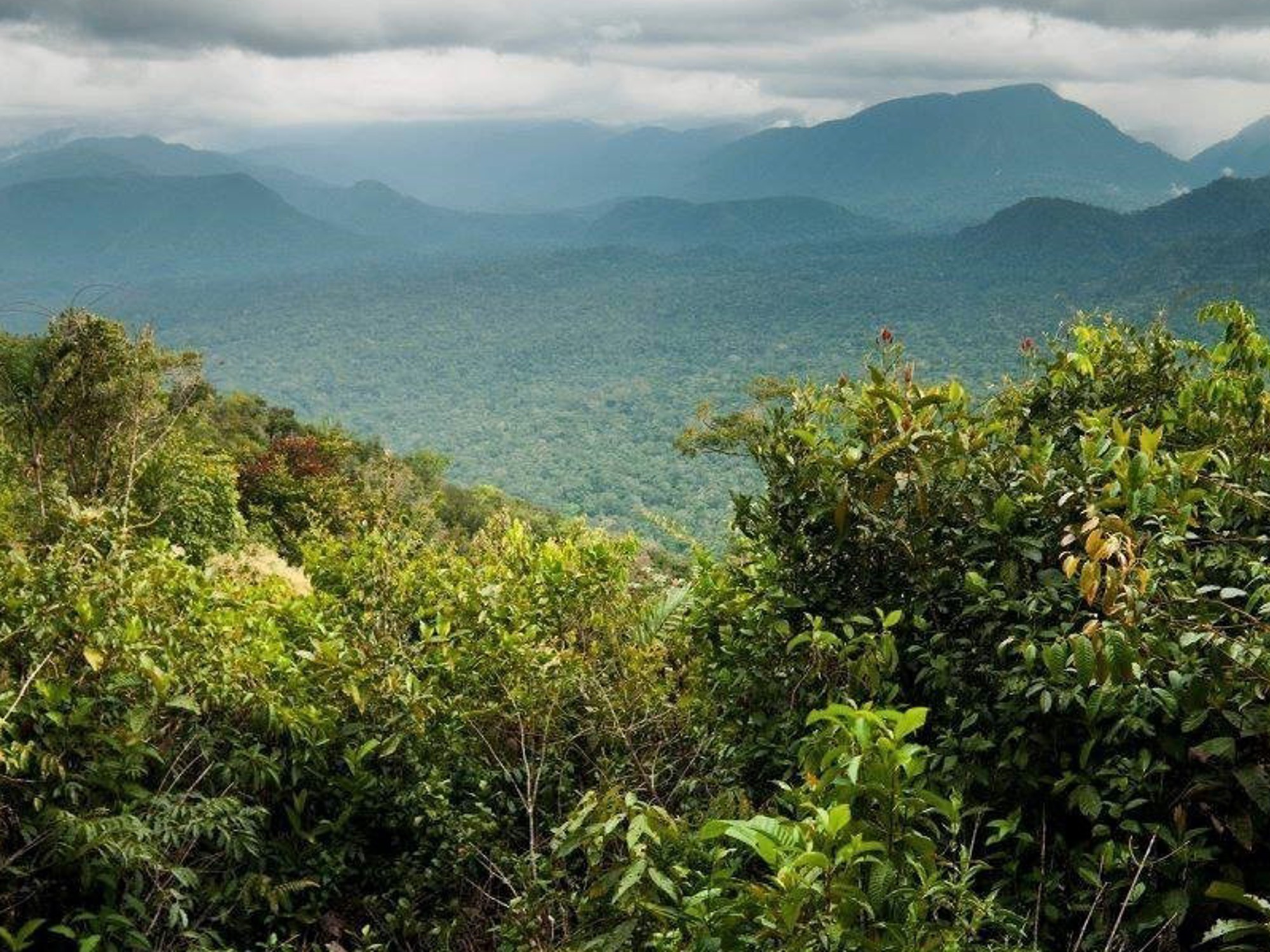RBGE scientists have contributed to a landmark study suggesting that increasing global temperatures may cause both Amazon and African rainforests to become net sources, rather than sinks, of carbon much sooner than previously thought.
In a paper published in Nature this week, Dr David Harris and Dr Axel Dalberg Poulsen, with colleagues from around the globe, explain how data from two massive research networks in Africa and Amazonia, covering a total of 300,000 trees, has been used to calculate the amount of carbon stored in these tropical forests and, crucially, how it has changed over time. The results make grim reading.
The world’s tropical forests are important centres of biodiversity and ecosystem services, including water cycling and resources such as medicinal plants and crop wild relatives perhaps yet to be discovered. They have also long been considered vital tools in mitigating climate change: in the 1990s and early 2000s tropical forests accounted for around half of all terrestrial carbon sequestration; the carbon already stored in their trees is equivalent to around 90 years of global emissions from fossil fuel use. Climate modellers, attempting to predict future atmospheric greenhouse gas levels and develop climate scenarios, usually assume that this carbon sink will remain relatively stable for decades to come. The Nature study suggests this is not a wise assumption.
The study shows that the overall ability of the world’s tropical forests to remove carbon from the atmosphere has already peaked—as long ago as 1990. Lead author Dr Wannes Hubau, now based at the Royal Museum for Central Africa just outside Brussels, explained that combining data from Africa and Amazonia helped the scientists to “understand why these forests are changing … extra carbon dioxide boosts tree growth, but this effect is being increasingly countered by the negative effects of higher temperatures and droughts which slow growth and can kill trees.”
The study predicts that the weakening of both African and Amazonian sinks will continue, with the latter becoming an active carbon source by the mid-2030s. Once this “tipping point” is reached we will potentially enter a cycle of positive feedbacks with runaway loss of stored carbon and rapidly increasing global temperatures.
The worry, says lead author Prof. Simon Lewis, of Leeds University, is that “this has already begun. This is decades ahead of even the most pessimistic climate models. There is no time to lose in terms of tackling climate change.” As Prof. Lewis concludes: “The window of opportunity is closing fast.”

